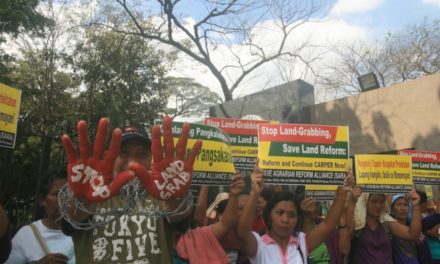In many townships and rural districts across South Africa and Swaziland, pre-paid water meters have been installed to improve the “efficiency” of fee collection – what is known as “cost recovery” in World Bank terminology. It is worth taking a minute to carefully describe this insidious technology. Instead of a regular tap that switches on and off, you have a large metal meter box with a slot for a plastic card and a water tap below. You pay a certain amount of money to officialdom and the card is computer coded to allow the allocated amount of water to run through the tap. (Much like a prepaid long distance phone card.) When the “credit” runs out you are cut-off until you can pay again.
This is considered very efficient by the water companies and the government because there is no need for billing or collecting and no need to deal face-to-face with people when you cut them off. Often these pre-paid meter boxes replace communal standpipes in rural villages and townships in South Africa and Swaziland. The only problem with this “efficient” system is human vulnerability: we need water to survive.
In developing countries the lack of access to clean and affordable water contributes to the spread of water-borne diseases, which kill more than 2 million people, mostly children, each year. From August 2000 to February 2002, since pre-paid meters were installed in many areas of KwaZula Natal province, 113,966 people were infected with cholera and 259 people died. In contrast, during the previous two decades, from 1980 to 2000, only 78 people died of cholera. Authoritative research on the cholera outbreak in KwaZulu-Natal has linked it to the policies of increased “cost recovery” for water, the installation of pre-paid meters, and the special vulnerability of people living with HIV to cholera.
Johannesburg – know to many local activists as the most un-sustainable city in the world — will host the UN World Summit on Sustainable Development (Rio +10) in August this year. It is estimated that 65,000 delegates will attend. Who’ll pay for their water?
* Sara Grusky, International Water Working Group Public Citizen, Water for All Campaign. For more information







